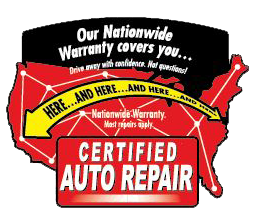
AUTONET TV
Archive for February 2021Is Your Jupiter Driving Severe?Posted February 28, 2021 10:52 AM
If that's severe driving, what constitutes regular driving? Well, it would look something like this: I live somewhere with moderate temperatures all year round – I'm thinking San Diego here. And I live close to a freeway on-ramp. Everywhere I need to go is right off the freeway, at least four miles (six and a half km) from my home. I can drive at a steady 60 miles per hour (100 kph) when I'm on the freeway. East Coast Automotive Services Such a Little Part (Climate Control Resistor)Posted February 21, 2021 8:07 AMYou expect your heater/air conditioner to work like it should. You have a control for temperature and one for fan speed. You even have a control for what vents the air comes out of. Don't be surprised one day if your blower fan develops a mind of its own and starts going crazy. Most of the time, you may find that it starts blowing at full speed, and nothing you do to try to control it does any good. This is what may be happening. Your blower motor has an electronic component called a resistor. It does what its name says; it offers resistance. When you want the fan to run more slowly, you turn the fan speed down. That resistor accomplishes that by turning its resistance up. When the resistor fails, the power has nothing to slow it and the fan speeds up. It's a small part and can fail due to age or corrosion. It's usually not an expensive part, either, but it's often found in a location that's not that easy for the technician to get to. That means labor costs will vary depending on the design of your vehicle. Occasionally, a faulty resistor can cause the blower motor not to work at all or only partially come on. But other things can cause that as well, such as a faulty fan switch or vent control. This is where a technician's training comes in. Special equipment can track down precisely where the issue is so you can be assured the correct part is being replaced. It's just not pleasant when the blower motor isn't following orders. Have your service facility check it out so you can be the blower's boss, like it should be. East Coast Automotive Services Tire Maintenance in JupiterPosted February 14, 2021 9:50 AMWith the recent focus in the Jupiter area on improving fuel economy, we've been told how important it is to maintain our tire pressure. Stop by East Coast Automotive Services to see about tire maintenance for your vehicle. East Coast Automotive Services Every vehicle in the Jupiter area has a sticker on the driver's side door jamb that tells you the vehicle manufacture's recommended tire pressure. This recommendation is an integral part of the vehicle's suspension tuning. A lot of engineering actually goes into the recommended tire pressure, so it's important for drivers to follow it. For most vehicles, front tires are rotated to the rear and vice versa. Others recommend a cross rotational pattern. Some vehicles use an asymmetrical tire so those tires need to stay on either the right or left side – it'll say which on the tire. Some high performance cars have asymmetrical tires and different sizes on the front and rear. These can't be rotated at all. Your owner's manual will have details for your vehicle or ask your service advisor at East Coast Automotive Services. The team at East Coast Automotive Services also wants to remind you that it is important to always use the same size tire on an axle. Different size tires on the front or on the back can lead to some real handling problems. And tire manufacturers recommend that when you get two new tires, they be installed on the rear because that's where you need the most traction to avoid spinning out.
It's Brake Time (Brake Calipers)Posted February 7, 2021 9:02 AMRace car drivers have demonstrated the advantages of disc brakes, so most modern vehicles use them. Sometimes just the front wheels have disc brakes, but many vehicles now have them all the way around. A major component of the disc brake is called a caliper. It works by squeezing brake pads against the disc or rotor, kind of like a bicycle hand brake. The brake pads themselves are what contact the rotor, causing friction to build and the wheel to slow down, but it's the calipers that apply the pressure to the pads. Caliper design has evolved over the years, and there are two common types. One is called a floating caliper. It has one or two pistons on one side of the disc. When you push down the brake pedal, the piston or pistons in your caliper put pressure on that one side. A mechanism connected on the other side of the disc applies pressure as well, squeezing your disc so the vehicle stops. Floating calipers are less expensive since they have fewer parts. The other type is called a fixed caliper. They use pistons on both sides of the disc, sometimes several. They are often used in more high-performance or heavy-duty vehicles. Calipers can have rubber seals to keep out dirt, debris and moisture, but when that rubber wears out, sometimes the calipers can get contaminated. They can stick or start leaking; they can even rust. Then your caliper can get stuck applying that "squeeze" when you are not pressing on the brake pedal. Or they can get stuck in the other position, not applying stopping power when you press the pedal. When this happens, it's not unusual to feel your vehicle pull to one side when you brake. You might notice a burning smell from the constant friction if the caliper is stuck on, plus you may feel the heat from the wheel after you park and get out of your vehicle. Sometimes you'll hear a high-pitched sound or clunk if your calipers are binding up. That's your cue to have them checked out at your vehicle service center. If your calipers aren't working correctly, it can be a safety hazard. Sticking calipers can affect your ability to steer and stop; this is the kind of "brake time" you need so you can get them back on track and working properly. East Coast Automotive Services | ||
SearchArchiveSeptember 2020 (17)October 2020 (4) November 2020 (5) December 2020 (4) January 2021 (6) February 2021 (4) March 2021 (4) April 2021 (4) May 2021 (5) June 2021 (4) July 2021 (4) August 2021 (5) September 2021 (4) October 2021 (5) November 2021 (4) December 2021 (4) January 2022 (6) February 2022 (4) March 2022 (4) April 2022 (4) May 2022 (5) June 2022 (4) July 2022 (5) August 2022 (4) September 2022 (4) October 2022 (5) November 2022 (4) December 2022 (4) January 2023 (5) February 2023 (4) March 2023 (4) April 2023 (5) May 2023 (4) June 2023 (4) July 2023 (5) August 2023 (4) September 2023 (4) October 2023 (5) November 2023 (4) December 2023 (5) January 2024 (5) February 2024 (4) March 2024 (5) April 2024 (3) | CategoriesFuel System (21)Drive Train (4)Maintenance (16)Shocks & Struts (4)Auto Safety (5)Safety (2)Transmission (2)Oil Change (3)Steering (5)What Customers Should Know (25)Check Engine Light (1)Battery (8)Fuel Saving Tip: Slow Down (2)Alignment (4)Tires and Wheels (16)Fuel Economy (7)Parts (2)Winter Prep (2)Fluids (6)Cabin Air Filter (3)Cooling System (7)Timing Belt (2)Brakes (11)Service Intervals (1)Diagnostics (2)Inspection (3)Automotive News (4)Tire Rotation and Balancing (1)Service Standards (3)Exhaust (5)Monitoring System (3)Windshield Wipers (2)Air Conditioning (4)Tires (2)Alternator (3)TPMS (3)Older Vehicles (1)Differential Service (1)Keys to a long lasting vehicle (3)Trip Inspection (1)Wheel Bearings (1)Fuel Pump (1)Suspension (1) | |

OUR REVIEWS


Bruce Zabriski, 04/21/2024Very professional, no nonsense and to the point. Steve who was my advisor had very good advise and counsel for repairing my sons car. They did a very good Job and were prompt and fair. What more could you ask for.







